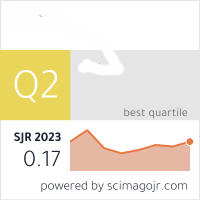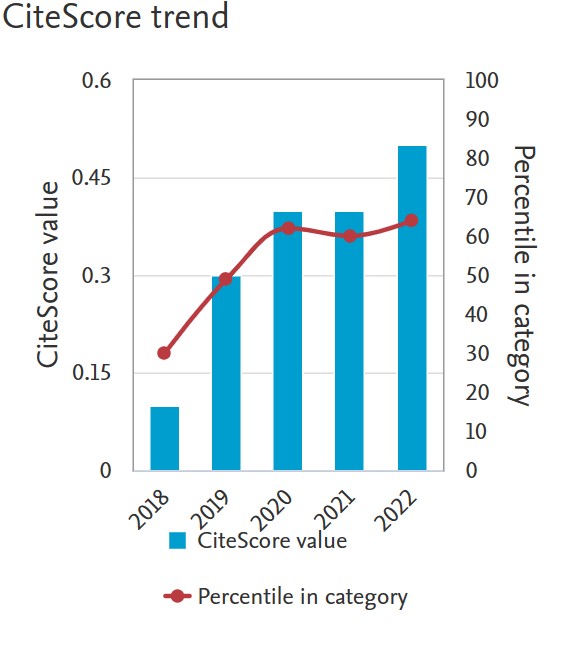Artificial morality for artificial intelligence
Keywords:
history of medicine, universal morality, artificial intelligence, ‘trolley problem’, ‘moral machine’, real moral dilemmasAbstract
To unify the solution to the problems faced by the creators of algorithms for artificial intelligence (AI) for making moral de-cisions, both multifarious variants of speculative experiments and the results of studying the consequences of real events or generally accepted actions and stereotyped decisions were proposed. As a general rule, these were models of various critical situations requiring immediate solutions and designed to test the range of problems arising in the course of practical use of artificial intelligence in the field of administration and security. Various moral dilemmas, both artificially created and based on real events, were proposed as models for the decision-making algorithm. Decision-making requires defining the boun-daries of the legitimacy of decisions made by AI. The authors analyse the logic of the choice between life and death in the 8th declamation of pseudo-Quintilian, as well as in the Survival Lottery (an experiment with organs for transplantation), the Terrorist Ultimatum, the trolley problem, and in the Moral Machine problem. Life forces us to constantly make choices to solve a wide range of everyday tasks, such as clinical experiments of physicians, medical triage of the wounded on the battle-field, treatment of patients in a state of prolonged coma and with orphan (rare) diseases, and other problems upon which the fate and lives of people depend. The authors are convinced that, at present, there is no universal morality that could serve as the basis for the creation of AI, including that for driving vehicles. When creating a universal morality for AI, one should consider the answer to the main question: do lives of all people have the same value?
Downloads
References
Albin RL (2005) Sham surgery controls are mitigated trolleys. J Med
Ethics 31 (3): 149‒152. doi:10.1136/jme.2003.006155
Andrade G (2019) Medical ethics and the trolley problem. J Med Ethics
Hist Med 12(3): 1‒15.
Awad E, Dsouza S, Kim R, Schulz J, Henrich J et al. (2018) The Moral Machine experiment. Nature 563: 59–64. doi:10.1038/s41586-018-0637-6
Bigman YE, Gray K (2018) People are averse to machines making moral
decisions. Cognition 181: 21-34. doi:10.1016/j.cognition.2018.08.003 Bonnefon J-F, Shariff A, Rahwan I (2016) The social dilemma of autonomous vehicles. Science 352 (6293): 1573‒1576. doi:10.1126/science.
aaf2654
Campbell AV (2013) Bioethics: the basics. Taylor & Francis Books.
Carter SM (2017) Overdiagnosis, ethics, and trolley problems: why factors other than outcomes matter ‒ an essay by Stacy Carter. BMJ 358:
j3872. doi: 10.1136/bmj.j3872
Cushman F, Greene JD (2012) Finding faults: how moral dilemmas illuminate cognitive structure. Soc Neurosci 7 (3): 269‒279. doi:
1080/17470919.2011.614000
Caesarii Heisterbacensis monachi Ordinis Cisterciensis Dialogus miraculorum. Vol. 1 (1851) Ed. Joseph Strange. Köln; Bonn; Bruxelles:
Sumptibus J. M. Heberle (H. Lempertz & comp.).
Delkeskamp-Hayes С (2015) The distant echo of Aristotle in bioethics today – and how to reduce the Noise. History of Medicine 2 (4): 431–441.
Dahl FA, Oftedal G (2019) Trolley Dilemmas Fail to Predict Ethical Judgment in a Hypothetical Vaccination Context. J Empir Res Hum Res
Ethics 14 (1): 23‒32. doi: 10.1177/1556264618808175
Davnall R (2019) Solving the Single-Vehicle Self-Driving Car Trolley
Problem Using Risk Theory and Vehicle Dynamics. Sci Eng Ethics.
Preprint. Published online: 01 April 2019. https://link.springer.com/article/10.1007/s11948-019-00102-6. doi: 10.1007/s11948-019-00102-6
Epting S (2016) A Different Trolley Problem: The Limits of Environmental Justice and the Promise of Complex Moral Assessments for Transportation Infrastructure. Sci Eng Ethics 22 (6): 1781‒1795.
Faulhaber AK, Dittmer A, Blind F, Wächter MA, Timm S et al. (2019)
Human Decisions in Moral Dilemmas are Largely Described by Utilitarianism: Virtual Car Driving Study Provides Guidelines for Autonomous Driving Vehicles. Sci Eng Ethics 25 (2): 399‒418. doi:10.1007/
s11948-018-0020-x
Ferngren G (2017) Vivisection Ancient and Modern. History of Medicine 4 (3): 211–221. doi:10.17720/2409-5834.v4.3.2017.02b
Foot Ph (1967) The Problem of Abortion and the Doctrine of the Double
Effect. Oxford Review 5: 5–15.
Frank D-A, Chrysochou P, Mitkidis P, Ariely D (2019) Human decision-making biases in the moral dilemmas of autonomous vehicles.
Scientific Reports 9. Published online: 11 September 2019. https://
doi.org/10.1038/s41598-019-49411-7.
Greene JD, Cushman FA, Stewart LE, Lowenberg K, Nystrom LE еt al.
(2009) Pushing moral buttons: The interaction between personal
force and intention in moral judgment. Cognition 111 (3): 364–371.
Greene JD (2016) Our driverless dilemma. Science 352 (6293):
‒1515.
Harris J (1975) The survival lottery. Philosophy 50: 81–87. doi:10.1017/
s0031819100059118
Iltis А (2015) Aristotle’s ethics and politics: reflections on bioethics and
the contemporary state. History of Medicine 2 (4): 442–447.
Kortenkamp KV, Moore CF (2014) Ethics Under Uncertainty: The
Morality and Appropriateness of Utilitarianism When Outcomes
Are Uncertain. The American Journal of Psychology 127 (3):
‒382.
Kolber A (2009) The organ conscription trolley problem. Am J Bioeth 9
(8): 13‒14. doi: 10.1080/15265160902948298.
Lally JF (2015) Ebola and moral philosophy: the trolley problem as a
guide. Del Med J 87 (1): 25‒26.
Manthous CA (2014) Emergency surgery, cardiopulmonary resuscitation, and the trolley problem. J Crit Care 29(1): 170‒171. doi:
1016/j.jcrc.2013.10.007
Noothigattu R, Gaikwad SS, Awad E, Dsouza S, Rahwan I et al. (2017)
A Voting-Based System for Ethical Decision Making. Published
online: 20 September 2017. https://arxiv.org/abs/1709.06692?context=cs.AI.
Rai TS, Holyoak KJ (2010) Moral principles or consumer preferences?
Alternative framings of the trolley problem. Cogn Sci 34 (2): 311-321.
doi: 10.1111/j.1551-6709.2009.01088.x
Rosenberg A (1992) Contractarianism and the “trolley” problem. J Soc
Philos 23 (3): 88‒104. doi:10.1111/j.1467-9833.1992.tb00134.x
Samokhvalov A, Krylov N, Vychuzhanin D (2017) Sindrom emotsionalnogo vygoraniya u vrachey (skolko let mne ostalos?) [Burnout syndrome in physicians (How long shall I last?)]. Vrach [Doctor] 9: 2‒5.
(In Russ.)
Swann WB, Jr., Gómez A, Dovidio JF, Hart S, Jetten J (2010) Dying and
killing for one’s group: identity fusion moderates responses to intergroup versions of the trolley problem. Psychol Sci 21 (8): 1176‒1183.
doi:10.1177/0956797610376656
Thomson JJ (1976) Killing, letting die, and the trolley problem. The Monist 59 (2): 204‒217.
Thomson JJ (1985) The Trolley Problem. Yale Law Journal 94 (6):
‒1415.
Tversky A, Shafir E (1992) The Disjunction Effect in Choice Under Uncertainty. Psychological Science 3 (5): 305‒309.
doi:10.1111/j.1467-9280.1992.tb00678.x
Downloads
Published
Issue
Section
License
You are free to:
- Share — copy and redistribute the material in any medium or format for any purpose, even commercially.
- Adapt — remix, transform, and build upon the material for any purpose, even commercially.
- The licensor cannot revoke these freedoms as long as you follow the license terms.
Under the following terms:
- Attribution — You must give appropriate credit , provide a link to the license, and indicate if changes were made . You may do so in any reasonable manner, but not in any way that suggests the licensor endorses you or your use.
- No additional restrictions — You may not apply legal terms or technological measures that legally restrict others from doing anything the license permits.
Notices:
You do not have to comply with the license for elements of the material in the public domain or where your use is permitted by an applicable exception or limitation .
No warranties are given. The license may not give you all of the permissions necessary for your intended use. For example, other rights such as publicity, privacy, or moral rights may limit how you use the material.











